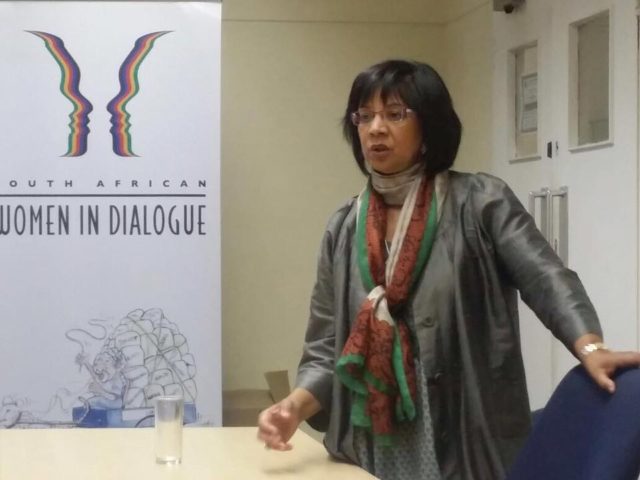Former South African Human Rights Commission (SAHRC) chair Barney Pityana, a theologian by training, is exploiting the recent death of anti-apartheid feminist Rhoda Kadalie in an attempt to rescue his shoddy record at the organization.
In an op-ed in the online version of South Africa’s Sunday Times, Pityana has attacked Kadalie as an “argumentative” and “divisive” colleague, who worked hard but “saw no need to practise collegiality,” and “had no respect for some of her colleagues.”
His claims are vague and evidence-free. Given public dissatisfaction with many South African government branches, including the nominally independent SAHRC, few would take seriously a former official who demands more “respect.”
But Pityana seems determined to push back against the many tributes that have appeared in the wake of Kadalie’s passing Saturday, most of which have noted approvingly that she resigned from the SAHRC in protest at its growing ineptitude.
Pityana wants to set the record straight, but has trouble with basic facts, such as the date of Kadalie’s resignation: she left in 1997, not in 2000, as he claims.
She wrote to Pityana: “In my opinion, much of the service (not all) we render is mediocre and many in the HRC seem happy just to toddle along, producing shoddy work because they get away with it.”
When Pityana tried to claim that the SAHRC lacked funding, Kadalie said “more money will not address questions around management.”
After she left, the SAHRC began shifting its focus away from the rights in South Africa’s constitution, and focusing instead on topics of interest to the ruling African National Congress.
In 2000, for example, it held hearings into alleged racism in the South African media, parallel to then-President Thabo Mbeki’s attempt to dismiss all criticism as racism. Kadalie excoriated the SAHRC, accusing Pityana of becoming the “self-proclaimed thought police” and violating freedom of expression.
Two decades later, Pityana still cannot defend his leadership of the SAHRC on the merits. He resorts to petty personal attacks.
He admits Kadalie was an “absolute professional,” but claims (falsely) that she resigned over a “tiff”; that she quarreled with staff over what he calls “the most minor infringements”; and that she raised objections “indiscreetly,” “in open commission meetings.” He speculates about her “unhappiness”: “I do not think she enjoyed her time at the commission,” he opines.
Actually, Kadalie said in 1997: “I love this job and I didn’t want to do it [resign]. It’s a very effective office with very limited resources. I want this job but under better conditions. I’m not happy with the way the organization is managed.”
She was viewed as the SAHRC’s most effective member, partly because she focused on the Western and Northern Cape provinces, to which she had been assigned.
Pityana now says she was “too regionally focused”; in other words, she did her job too well.
No doubt Kadalie, were she still alive, would have deconstructed the sexist connotations in Pityana’s attacks — as she did in 2003, when Chris Barron wrote a “chauvinist” article about Helen Suzman, a liberal stalwart and Kadalie’s former colleague at the SAHRC. (Barron, who penned an otherwise laudatory obituary of Kadalie for the Times, concluded it by imagining that she had few “remaining” friends in South Africa because of her support for Donald Trump. She kept most, and gained more.)
Pityana complains that Kadalie “took sides with the late Helen Suzman” over SAHRC communication policies. Suzman also resigned from the commission, a year after Kadalie, because she felt she was being “side-lined.” At no point did Pityana seem concerned about why the two most credible members of the SAHRC had left.
After trashing Kadalie, Pityana offers the family condolences, and wishes Kadalie “smooth passage to her heavenly rest.”
It is not hard to imagine her two-word response.
Joel B. Pollak is Senior Editor-at-Large at Breitbart News and the host of Breitbart News Sunday on Sirius XM Patriot on Sunday evenings from 7 p.m. to 10 p.m. ET (4 p.m. to 7 p.m. PT). He is the author of the forthcoming biography, Rhoda: Comrade Kadalie, You Are Out of Order!. He is a winner of the 2018 Robert Novak Journalism Alumni Fellowship. He is also Rhoda Kadalie’s son-in-law. Follow him on Twitter at @joelpollak.

COMMENTS
Please let us know if you're having issues with commenting.